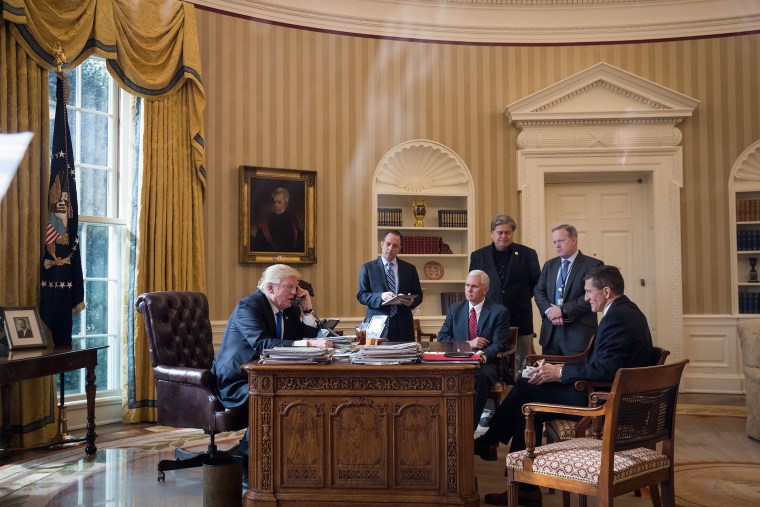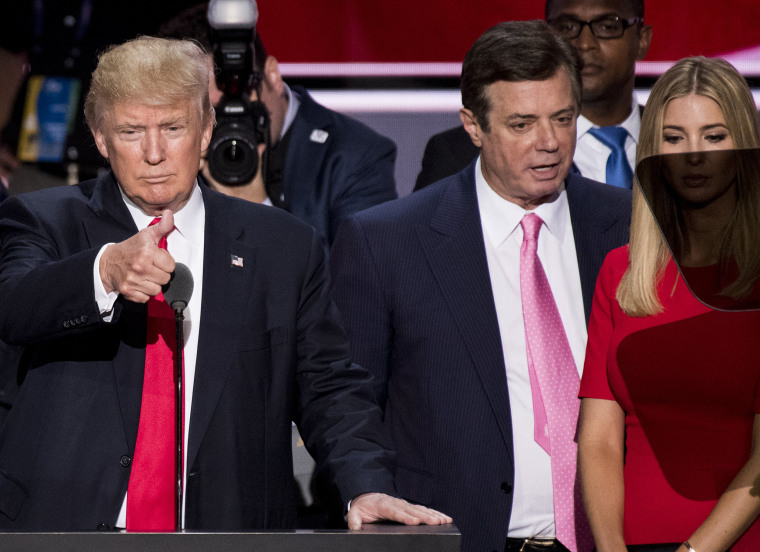President Donald Trump is right about one thing — he may never be charged with “collusion.” Despite its current use as a sort of catchall term for the Trump administration’s alleged ties to Russian meddling, “collusion” is only a federal crime in the area of antitrust law. In this legal context, collusion occurs when two or more people or entities decide to gain an unfair market advantage and/or secretly limit open competition.
One of the quintessential examples of collusion is an agreement to engage in price-fixing. Or put another way, collusion has nothing to do with the Trump campaign and the Russian government.
So if you’ve been talking about whether or not the Trump campaign colluded with the Russian government in the 2016 presidential election, you’ve been saying it wrong. But you’re also in good company. The vast majority of the public and the press routinely, and erroneously, use the word collusion to refer to a host of potential federal crimes. This does not mean the investigation is fake news, but it does mean we have been using the wrong term to describe it.
And while we are discussing inapplicable crimes, it is worth noting that Trump and his campaign staff and administration will almost certainly not be charged with treason, either. Under the U.S. Constitution, “Treason against the United States shall consist only in levying war against them, or in adhering to their enemies, giving them aid and comfort.” Here the word “enemies” means nations with which we are at war. We are not currently at war with Russia, and therefore one cannot commit treason by aiding Russia, even if the aid meant swaying the 2016 presidential election.
Now that we know which charges we will not see, we must ask which charges we might see as a result of special counsel Robert Mueller’s investigation into potential coordination between the Trump campaign and administration and the Russian government.

Let us begin at the beginning. Before Donald Trump became President Trump, the FBI was looking into connections between the Russian government and the Trump campaign. In May of 2017, Trump famously fired the director of the FBI, James Comey, who was ultimately in charge of that investigation.
That firing in and of itself may be illegal if it amounts to obstruction of justice. The question boils down to whether Trump fired Comey to try to slow or halt that investigation and/or because Comey wouldn’t pump the brakes on the investigation.
Following Comey’s firing, it became clear to many outside observers that a special counsel needed to be appointed to pick up where Comey left off. Due to Attorney General Jeffrey Sessions recusing himself from matters involving the Russia investigation, the job of picking the counsel fell to Deputy Attorney General Rod Rosenstein. Rosenstein’s subsequent pick of former FBI director Robert Mueller was —at the time at least — heralded by politicians on both sides of the aisle as proof that there were some adults left in the federal government.
But Mueller’s investigation is much more specific than just seeing if Trump or his affiliates “did something wrong.” He needs evidence that a specific Constitutional provision or statute was violated.
Mueller’s investigation needs evidence that a specific Constitutional provision or statute was violated.
And we already have four examples of cases in which Mueller and his team believe a variety of laws were violated. Michael Flynn, the former White House national security advisor, has been charged with making false statements to the FBI, which as it turns out, is a federal crime. He has since pleaded guilty.
Paul Manfort, former chair of the Trump campaign, was charged with money laundering, tax fraud, lying on federal forms regarding his lobbying activities and conspiracy, among other crimes.
Rick Gates, an aide to the Trump campaign and close confident of Paul Manfort, was charged with money laundering, making false statements, failing to file federal forms regarding his foreign bank and financial accounts and conspiracy, among other crimes.
And former Trump policy adviser George Papadopoulos was charged with making false statements to the FBI. He secretly pleaded guilty this fall.
A few lessons thus far for those of you taking notes at home — don’t lie to federal investigators, don’t lie on federal forms, don’t launder money and don’t commit tax fraud. If this feels overwhelming, make a list and put it on your refrigerator so you can keep track.
What are some other possible crimes that those involved in the Russian investigation could be charged with?
What are some other possible crimes that those involved in the Russian investigation could be charged with?
First, because we are in fact talking about an election, there could be violations of federal election laws. Specifically, it is a crime for a foreign national to give money or “other thing of value” in an American election. The “thing of value” could, for example, include helpful information on a candidate’s opponent.
Second, we could see charges brought for violating the Computer Fraud and Abuse Act if Trump or members of his campaign helped the Russians obtain (meaning steal) Democratic National Committee emails or helped them use (meaning release) those emails publicly.
Finally, there is our old friend “conspiracy.” (Manfort and Gates have already been charged with this particular statue.) The law specifically defines a criminal conspiracy as two or more people “conspire[ing] either to commit any offense against the United States, or to defraud the United States…” That basically means you agree to commit a crime and actually take some steps to try to commit that crime. The language about “defraud[ing] the United States” essentially refers to trying to cheat the federal government out of money or other property or trying to interfere with the functioning of the government.
The biggest resolved question of 2017 is that the Mueller investigation will not lead to charges of collusion or treason; the biggest unresolved questions are what, if any, charges come next.
Jessica A. Levinson is a professor at Loyola Law School, Los Angeles, and is the president of the Los Angeles Ethics Commission.

